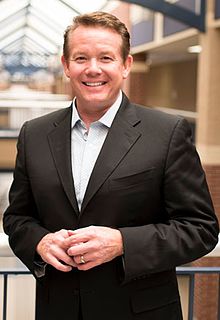A Quote by Thomas Carlyle
Related Quotes
Always aim at complete harmony of thought and word and deed. Always aim at purifying your thoughts and everything will be well. There is nothing more potent than thought. Deed follows word and word follows thought. The word is the result of a mighty thought, and where the thought is mighty and pure the result is always mighty and pure.
Man and his deed are two distinct things. Whereas a good deed should call forth approbation and a wicked deed dis-approbation, the doer of the deed, whether good or wicked always deserves respect or pity as the case may be. Hate the sin and not the sinner is a precept which though easy enough to understand is rarely practised, and that is why the poison of hatred spreads in the world.






































